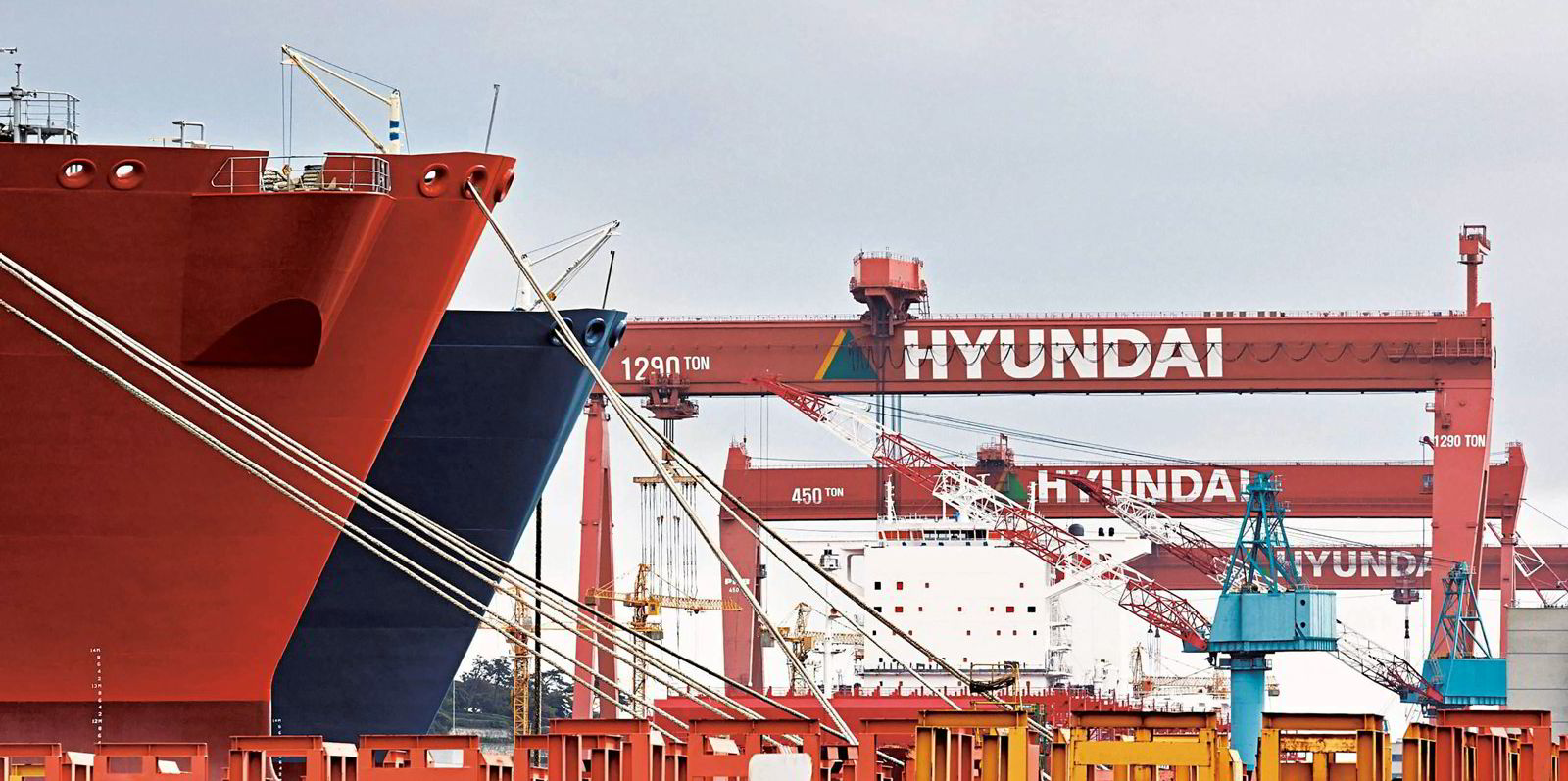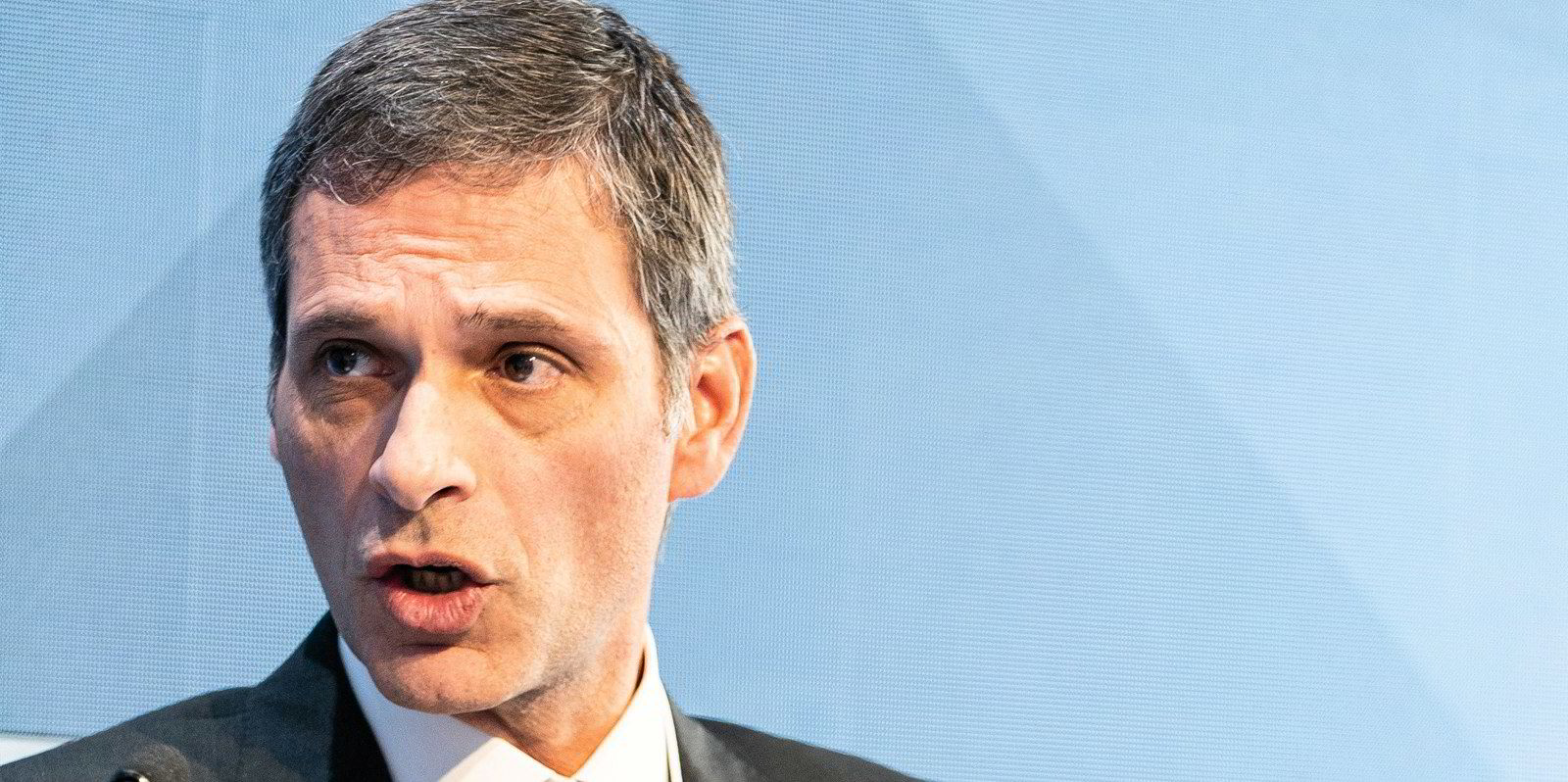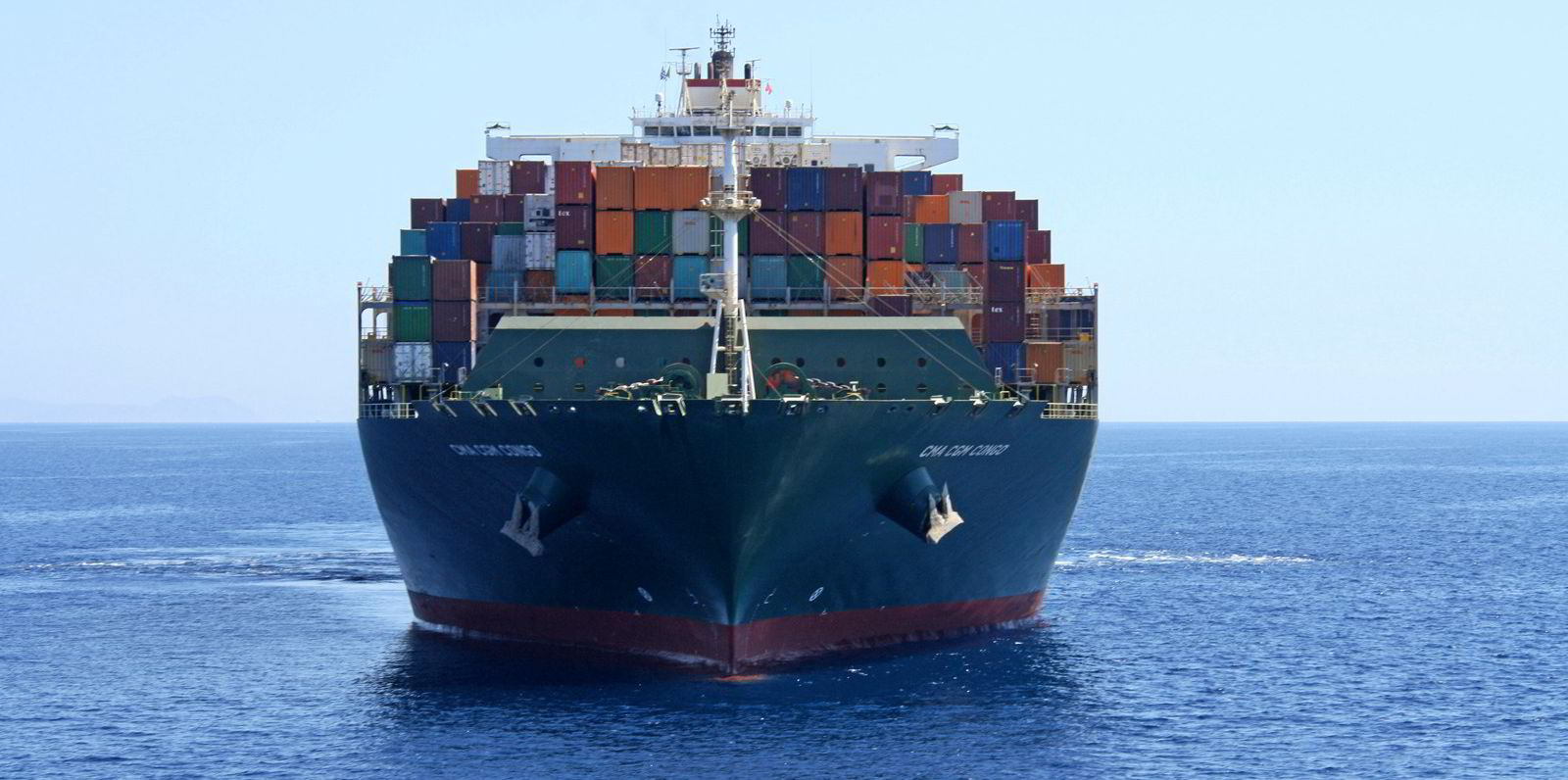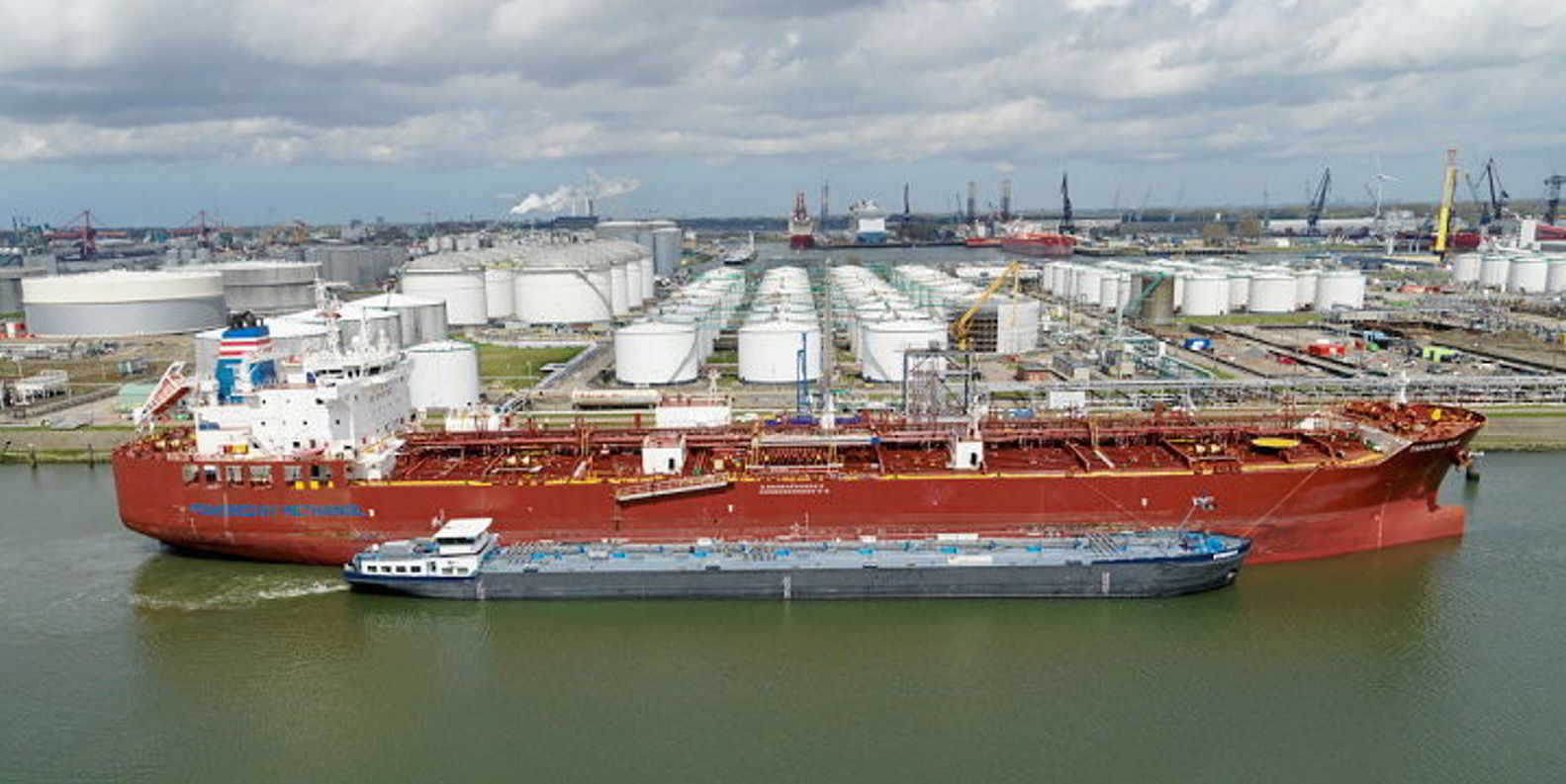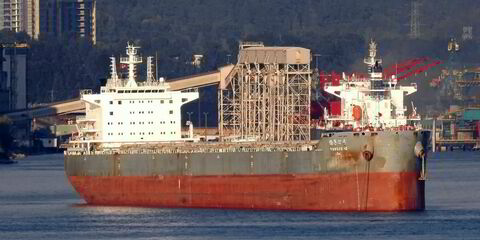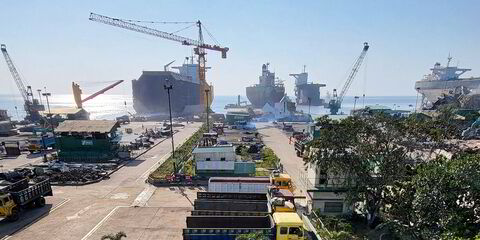French line CMA CGM is said to be pressing ahead with its decarbonisation drive by investing $2bn into a series of methanol-propelled container ships at Hyundai Samho Heavy Industries, despite freight rates collapsing.
Korea Shipbuilding & Offshore Engineering, which controls Hyundai Samho, announced that it had won a KRW 2.53trn ($2.05bn) order to construct 12 methanol-fuelled very large container ships from a European shipper.
KSOE did not disclose the buyer’s name or the size of the container ships.
But shipbuilding sources following the boxship market told TradeWinds that the newbuildings were of 13,000 teu and were ordered by CMA CGM.
Officials at KSOE declined to confirm if CMA CGM is the owner, citing contract confidentiality. At the time of writing, CMA CGM did not respond to requests for comment.
The 12-ship deal at Hyundai Samho will be the second methanol-fuelled newbuilding contract that CMA CGM has penned.
The contract lifts the total number of methanol-powered container ships it has ordered to 18.
Its earlier six newbuildings were ordered last summer.
CMA CGM contracted China’s Dalian Shipbuilding Industry Co (DSIC) to build six 15,000-teu vessels to be delivered during the second half of 2025.
The sextet was reported to cost the company about $1bn, or $175m per ship.
In November, CMA CGM chief executive Rodolphe Saade told delegates at the Conference on the Economy of the Sea in Lille, France, that his company will be ordering six more methanol container vessels of more than 15,000 teu, bringing the number of methanol ships to 12.
KSOE said methanol-powered vessels have been drawing attention from shipowners as the fuel produces less sulphur oxide and other pollutants than existing conventional marine oil bunkers.
AP Moller-Maersk was the first liner company to order methanol-fuelled large container vessels.
The Danish company has a total of 19 methanol-powered container vessels under construction at Hyundai yards — 12 units of 16,000 teu, six ships of 17,000 teu and a single 2,100-teu feeder ship.
Hyundai Mipo Dockyard is building the small boxship and is scheduled to deliver the vessel in June this year, while Hyundai Heavy Industries is constructing the neo-panamax vessels and is expected to deliver them in 2024 and 2025.
As for CMA CGM’s 12 methanol-powered, 13,000-teu newbuildings, Hyundai Samho is scheduled to deliver six vessels in 2025 and the other half-dozen in 2026.
Shipbuilding brokers said more companies are showing interest in methanol-powered container ship newbuildings as they are cheaper to build than those designed to use LNG as fuel, largely because there is no need for expensive cryogenic bunker tanks and fuel gas-handling systems.
Methanol is said to be easier to handle and more widely available. The gas can also be stored and transported as a liquid without the need to cool or keep it under pressure.
The downside of methanol is that it is a lower energy fuel than LNG, so larger quantities are needed to achieve the same power output.
